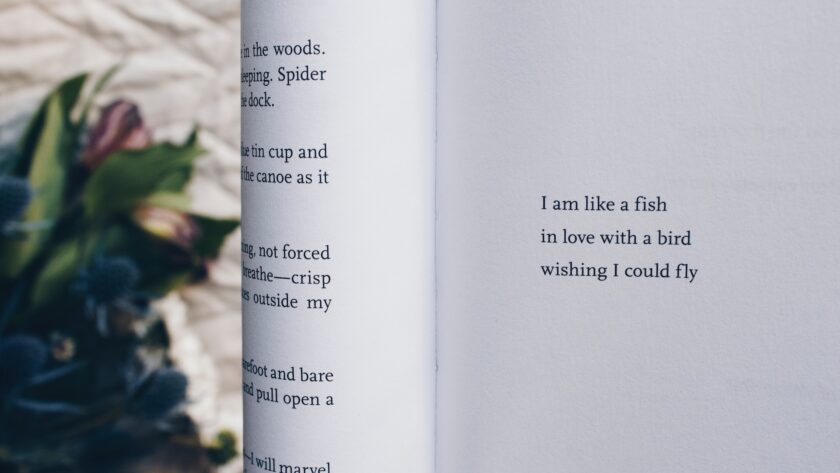Poetry is a beautiful form of self-expression, capturing emotions, and experiences in a concise and impactful manner. However, crafting a meaningful poem requires more than just pouring words onto paper. Poem editors play a vital role in the refinement process, transforming raw verses into polished masterpieces. In this article, we will delve into the art of refinement and shed light on the crucial role of a poem editor in shaping poetry.
What is Poem Refinement?
Poem refinement is the process of improving a poem’s structure, style, clarity, and overall impact. It involves fine-tuning the language, imagery, and themes to create a harmonious and captivating piece of art. While the initial draft of a poem may capture the poet’s emotions, it often requires a discerning eye to identify areas of improvement and elevate it to its full potential.
The Role of Poem Editors
- Objective Perspective
Poem editors bring an objective perspective to the table. As they are not emotionally attached to the poem, they can evaluate it more critically. This impartiality enables them to identify inconsistencies, weak lines, or areas that lack clarity, helping poets to enhance their work.
- Ensuring Consistency
A poem is like a delicate tapestry woven with words. Poem editors ensure that each thread aligns perfectly with the overall theme and tone of the poem. They examine the consistency of metaphors, symbols, and imagery to create a cohesive and impactful piece.
- Polishing Language
Language is the essence of poetry. Editors refine the language, suggesting more evocative words or phrases that amplify the poem’s emotions. By enhancing the rhythm and flow, they elevate the poem’s musicality, making it a joy to read aloud.
- Maintaining Authenticity
While poem editors offer valuable suggestions, they also understand the importance of preserving the poet’s voice and vision. Their role is to refine without altering the essence of the poem, respecting the poet’s original intent.
The Collaborative Process
- Open Communication
The collaboration between poets and editors relies heavily on open communication. Poets should express their objectives, emotions, and themes, while editors should provide honest feedback and suggestions. This mutual respect fosters a creative and effective collaboration.
- Revisions and Feedback Loops
Refinement is an iterative process. Editors provide feedback, and poets make revisions based on the suggestions. This feedback loop continues until both parties are satisfied with the final result.
Techniques Used by Poem Editors
- Emphasis on Imagery
Poem editors recognize the significance of imagery in poetry. They guide poets to use powerful and vivid imagery that resonates with readers, creating lasting impressions.
- Sensitivity to Sound
The sound of a poem is essential in conveying emotions. Editors help poets fine-tune the rhythm, meter, and rhyme, maximizing the auditory impact of the poem.
- Understanding Poetic Forms
Editors possess a deep knowledge of various poetic forms, from sonnets to free verse. They advise poets on choosing the most suitable form to enhance the poem’s impact.
- Line and Stanza Breaks
The placement of line breaks and stanza breaks can significantly impact a poem’s rhythm and meaning. Editors carefully analyze the breaks to maintain the flow and emphasize key moments.
The Impact of Poem Editors on Poetic Expression
- Refined Emotions
Through their expertise, editors assist poets in refining emotions, making them more accessible and relatable to readers. This emotional resonance strengthens the connection between the poet and the audience.
- Professional Presentation
Editors ensure that the poem meets industry standards and is presented professionally. This is particularly crucial for poets seeking publication or submitting their work to literary journals.
- Increased Publication Opportunities
A well-refined poem stands a better chance of getting accepted for publication. Editors improve the chances of a poem finding its way into anthologies, magazines, and other esteemed platforms.
Finding the Right Poem Editor
- Expertise and Experience
Look for editors with experience in poetry and a strong portfolio of refined works. Research their background and ensure they have a good understanding of various poetic styles.
- Compatibility
Poetry is a personal form of expression, and finding an editor who understands your unique voice is crucial. Seek someone who appreciates your style and can provide constructive feedback without altering your vision.
- Testimonials and Recommendations
Before finalizing an editor, read testimonials from previous clients and seek recommendations from fellow poets. Positive reviews and referrals are good indicators of a reliable editor.
The Importance of Sensitivity and Empathy
Poetry often delves into deeply personal and sensitive subjects. Poem editors must approach their role with empathy and understanding, as they handle the poet’s emotions with care. Sensitivity to the poet’s intentions and emotions allows editors to offer constructive feedback while preserving the poem’s authenticity. The bond of trust between poet and editor ensures that the refining process remains a positive and nurturing experience, fostering the growth of both the poet’s skills and confidence.
Respecting Diversity and Cultural Nuances
Poetry is a diverse art form, reflecting various cultures, languages, and experiences. Poem editors must be respectful of cultural nuances, understanding the significance of certain symbols, metaphors, or expressions in different communities. Embracing diversity enriches the refinement process, leading to poetry that can resonate with a broader audience and foster cross-cultural understanding.
Nurturing the Poetic Community
Poem editors not only contribute to individual poems but also play a role in nurturing the poetic community. By refining and promoting powerful poetry, they elevate the art form as a whole. Editors often work closely with literary journals, poetry anthologies, and publishing houses, curating collections that showcase the depth and diversity of poetic talent. In doing so, they provide poets with valuable exposure and create opportunities for collaboration and growth within the poetry community.
Enchanting Verses and Illuminating Souls
The partnership between poets and editors exemplifies the art of refinement, giving birth to enchanting verses that illuminate souls. With an objective eye and a compassionate heart, poem editors breathe life into poetry, elevating it from mere words to profound expressions of human experience. Through their invaluable contributions, poem editors champion the art of poetry and nurture the growth of poets, fostering a community that continues to inspire and uplift countless hearts around the world.





